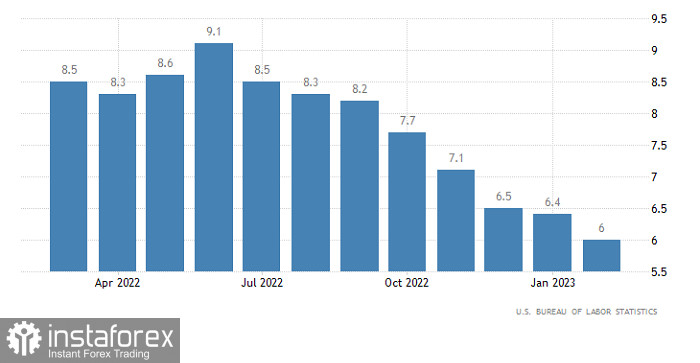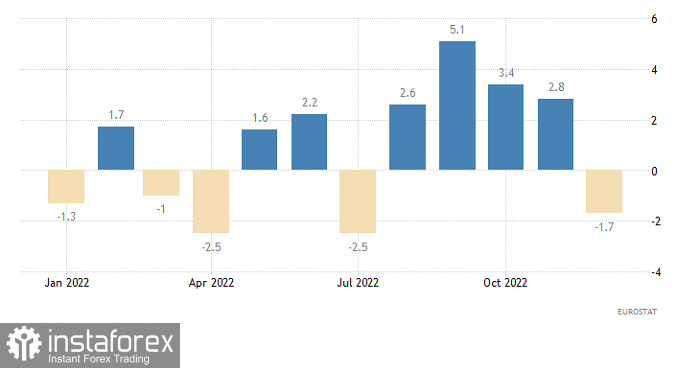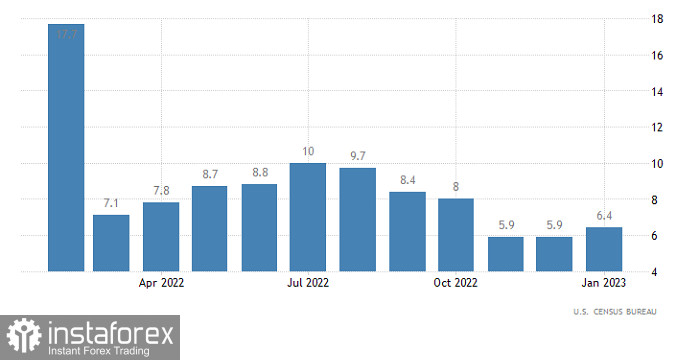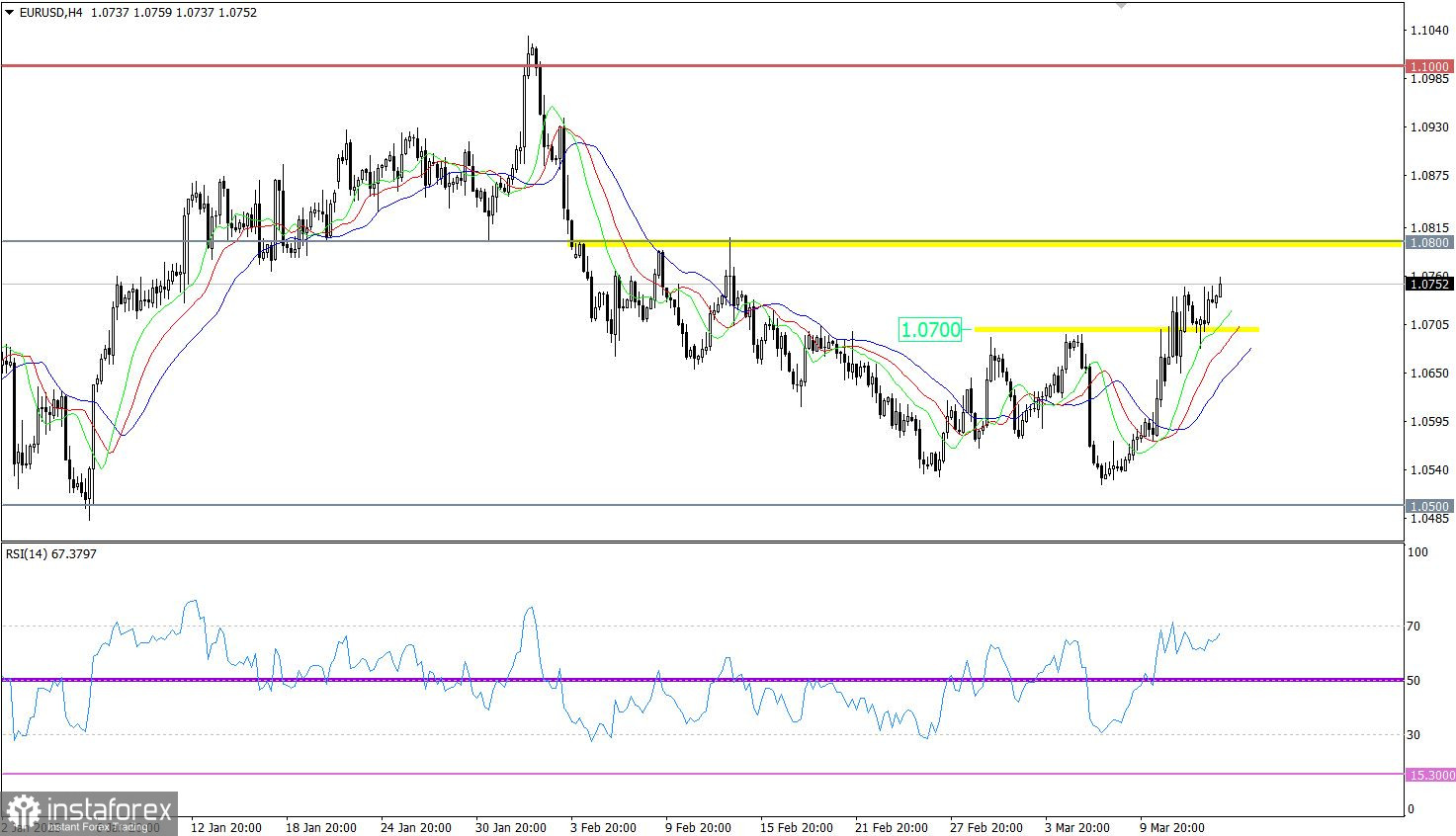The US media has already found the culprit in the banking crisis, and of course it is the Federal Reserve. They're saying that everything happened because the Fed has aggressively lifted interest rates. Supposedly, the main reason why two banks went bankrupt was because of the central bank. Now they are demanding that the Fed immediately start reducing interest rates and switch on the printing press and put out the fire with money. Furthermore, critics of the Fed have another reason to celebrate. Yesterday, we learned that US inflation slowed from 6.4% to 6.0%. It is decelerating for the eighth straight month, and in such circumstances, it will be very difficult for Fed Chairman Jerome Powell to explain the need not only to further raise interest rates, but also to do anything other than lower the refinancing rate.
Inflation (United States):

The dollar, on the other hand, will continue to be under pressure, as it loses ground not only because of the banking crisis in the United States and the clouds gathering over the Fed. Apparently, the banking crisis is already starting to spill over to Europe as well. We're talking about macro data, which are starting to point to more and more problems in the United States, and the stabilization of the situation in the euro area. In particular, the rate of industrial production decline in Europe should be replaced by growth from -1.7% to 0.5%.
Industrial production (Europe):

In the United States, the growth rate of retail sales should slow down from 6.4% to 4.3%. And if all of these forecasts are confirmed, the dollar will have no choice but to keep losing ground.
Retail Sales (United States):

The euro continued to rise against the U.S. dollar after a brief pullback. It passed 1.0700 earlier, which played the role of support, strengthening the bullish sentiment in the market.
On the four-hour chart, the RSI technical indicator is moving in the upper area of 50/70, which indicates bullish sentiment among traders. On the daily chart, the RSI recently climbed above the 50 midline, which indicates a change in sentiment.
On the four-hour and one-hour charts, the Alligator's MAs are headed upwards, which corresponds to the upward cycle from the middle of last week. On the daily chart, the primary signal will show change in trading sentiment, as the moving lines are intertwined with each other.

Outlook
The technical signal that shows change in sentiment, which indicates that the euro will gradually recover against the decline in February, will emerge if the price stays above 1.0800. Until then, that level will act as resistance, relative to which it is possible to reduce the volume of long positions on the euro.
The complex indicator analysis unveiled that in the intraday and short-term periods, technical indicators are pointing to bullish sentiment.





















